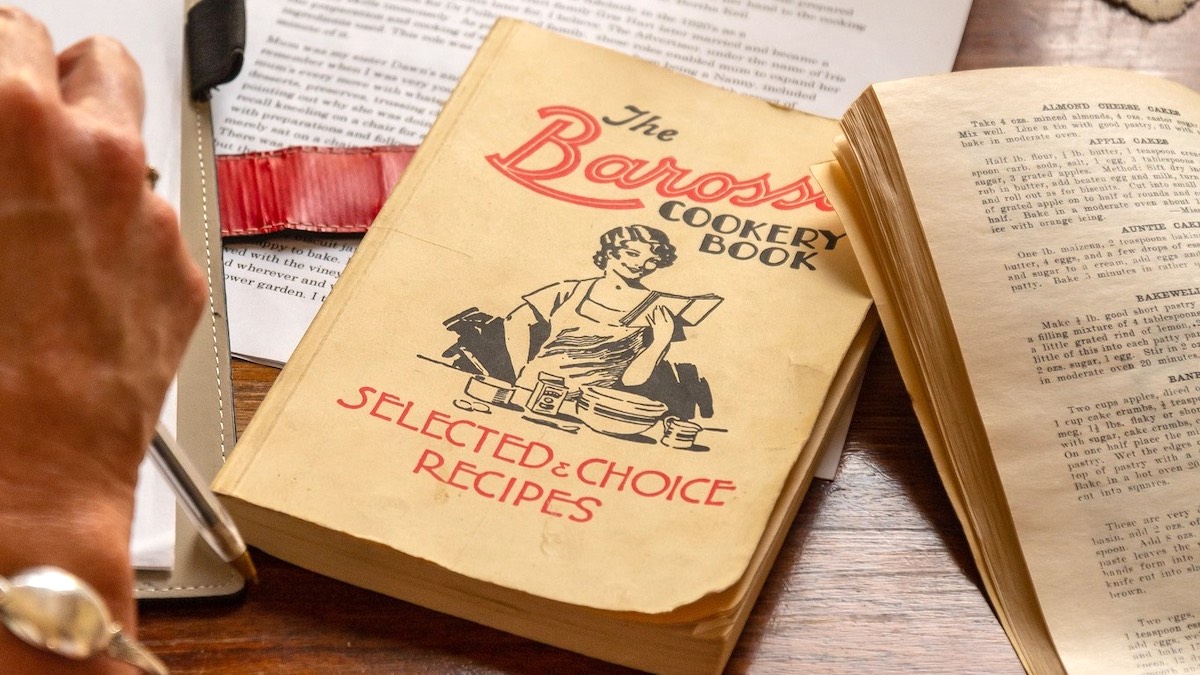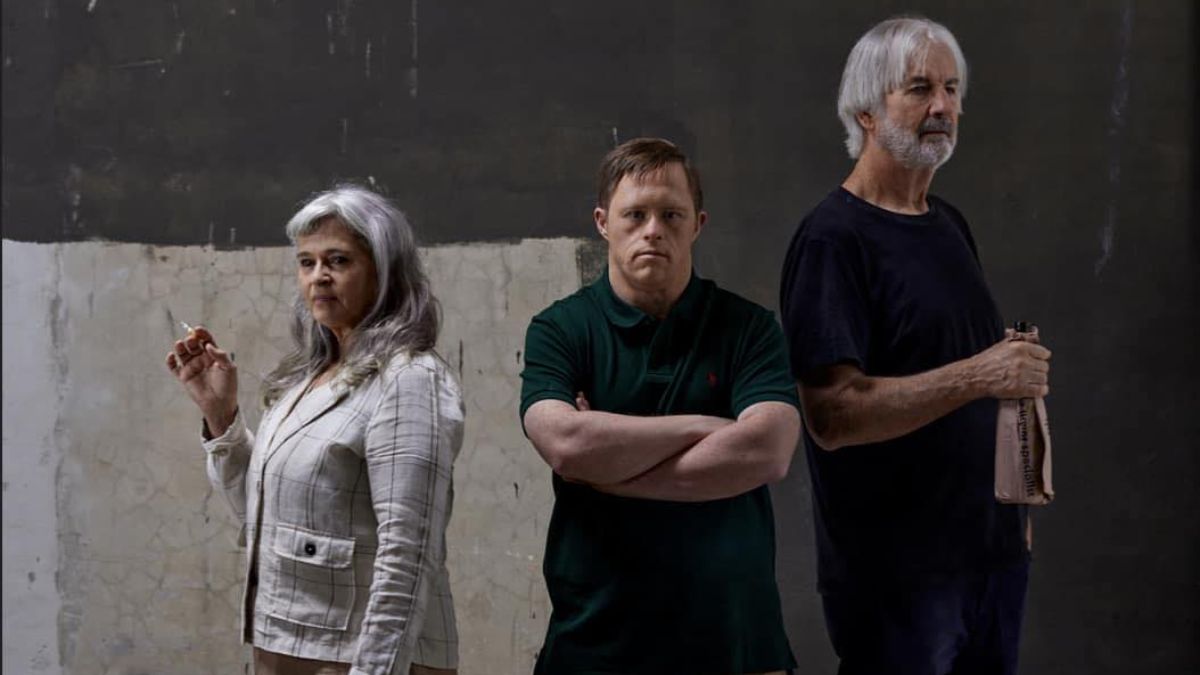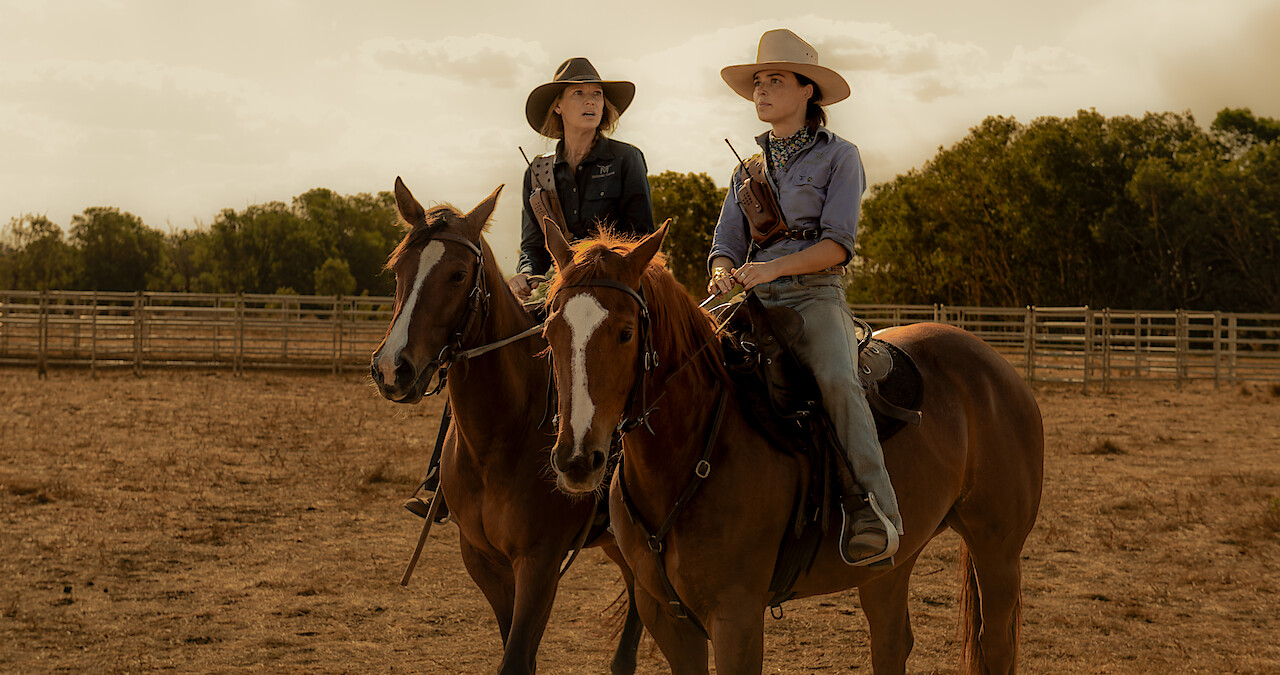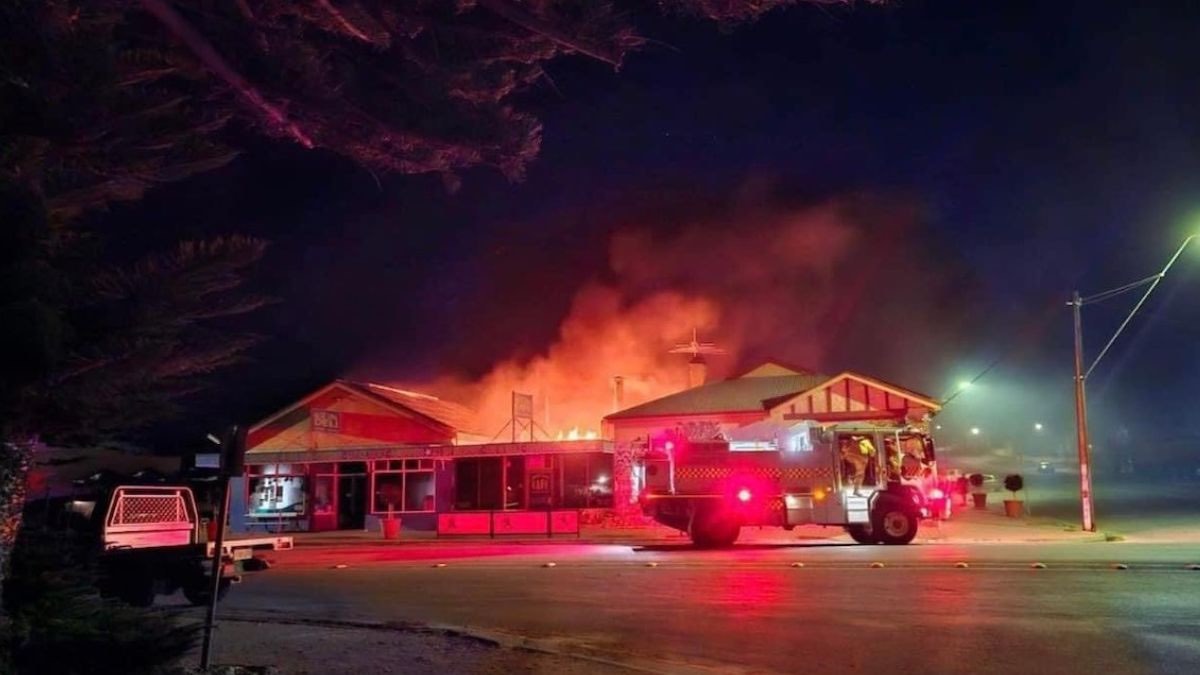Those Barossa Girls have built a business with the key ingredients being their love of local, seasonal food and desire to share and preserve local food traditions.
Sheralee Menz and Marieka Ashmore are leading the way to inspire a generation of “keepers” – keepers of the traditional food skills, the regional food stories and the new ways of doing old valuable things.
“We love old recipes, the recipe books that hold them, the people who keep them, and the traditional skills you need to create them. We want to create a community of people who recognise their value and refuse to let them die,” Sheralee Menz, said.
They do this by holding online and in-person workshops, teaching the generations-old skill of preserving using the Fowlers Vacuole system, which takes the abundance of seasonal fruit and turns it into a shelf-stable food product to nourish the family, cheaply and easily.
“It’s sustainable, economical, nutritious, and deceptively easy – and it’s a skill that is as relevant now as 100 years ago.”
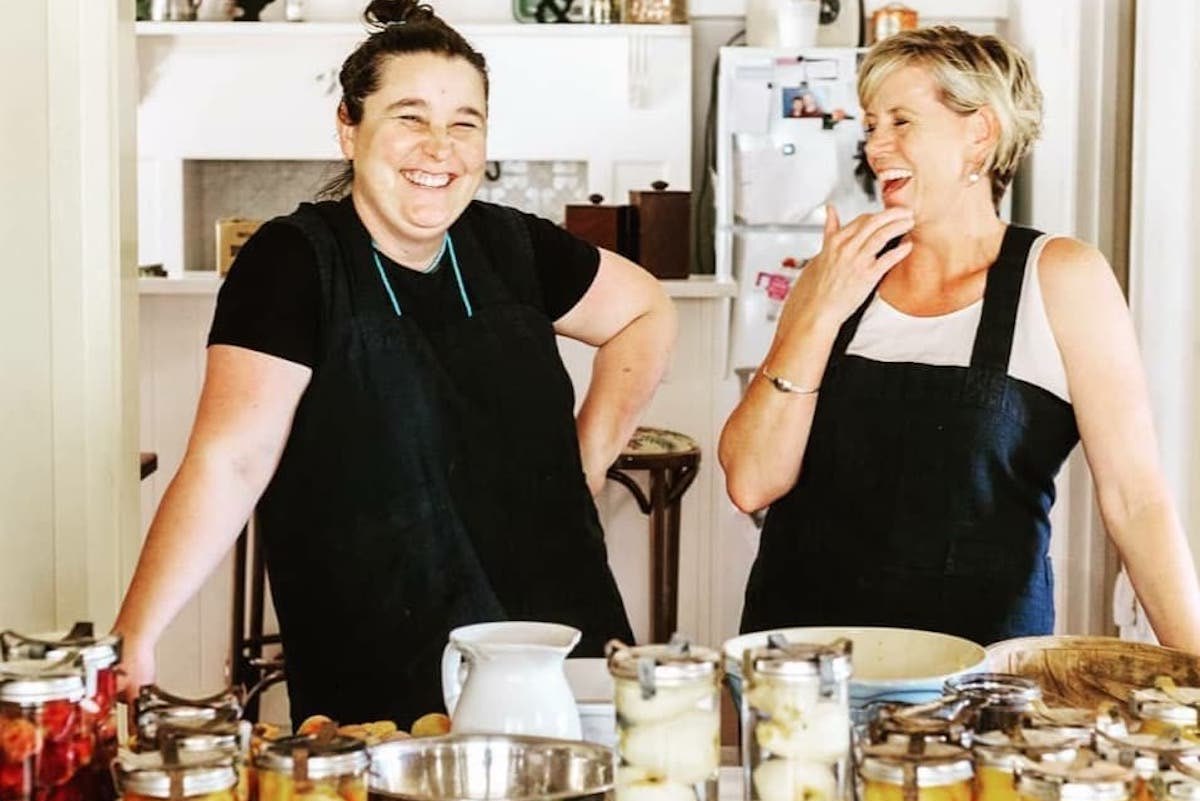
Another labour of love for the girls, is the Barossa Cookery Book project. The iconic publication, first printed in 1917, is incredibly significant to the region.
“It’s one of the very few community cookbooks still in continuous print, with its proceeds still supporting the community that created it,” Sheralee said.
“This little cookbook with its 400 recipes contributed by women across the region raised enough money to establish the Tanunda Soldiers Memorial Hall, and in doing so it became a local institution.”
In 1932 a revised edition of the Barossa Cookery Book was released, with an additional 600 recipes added.
The new project, which has been several years in the works, captures a curated selection of iconic recipes and passes them forward to a new generation by translating them to metric and giving them a full modern method.
The project will identify historic recipes that hold particular significance or resonance and will update them to modern metric format with a full method. Where possible, the story of the woman who contributed the recipe will also feature alongside.
“The new book will serve as a companion to the original book, not a replacement, and will aim to encourage a new generation of keepers to develop enough confidence to translate and use the original, imperial, recipes.
These recipes are precious snapshots in time, candidly preserving a world at war and advertising firmly entrenched gender roles, as well as themes of frugality and seasonality.
But it’s also about the contributors. We have no living memories of the despair, the grief, the loss and destruction of World War One, but these recipe contributors were living it. And they endured. And it shaped their communities and in-turn the country we became. These were ordinary women living humble normal lives, yet their quiet stories of commitment, devotion and love deserve to be heard. In 1917 when the world was dark these women were beacons of hope, strength and light for their families and community. Our project exists for them.”
One of Australia’s best-known culinary icons and another Barossa Valley icon, Maggie Beer, is also contributing to the project, with an announcement set to be made by the year’s end, about when the publication will be available.
To find out more about Those Barossa Girls and their Barossa Cookery Book project click here.
